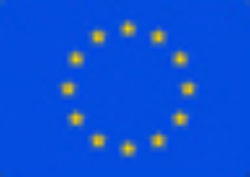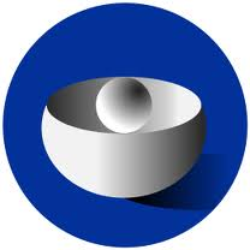
Regulator
European Medecine Agency (EMA)
Regulator

European Medecine Agency (EMA) 7 Westferry Circus . Canary Wharf . London E14 4HB UNITED KINGDOM Tel +44 (0)20 7418 8400 . Fax +44 (0)20 7418 8416
The European Medicines Agency (EMA) is a decentralised body of the European Union, located in London. Its main responsibility is the protection and promotion of public and animal health, through the evaluation and supervision of medicines for human and veterinary use.
- The Agency is responsible for the scientific evaluation of applications for European marketing authorisations for both human and veterinary medicines (centralised procedure). Under the centralised procedure, companies submit a single marketing-authorisation application to the Agency. Once granted by the European Commission, a centralised (or ‘Community’) marketing authorisation is valid in all European Union (EU) and EEA-EFTA states (Iceland, Liechtenstein and Norway).
- All medicines for human and animal use derived from biotechnology and other high-tech processes must be approved via the centralised procedure. The same applies to all advanced-therapy medicines and human medicines intended for the treatment of HIV/AIDS, cancer, diabetes, neurodegenerative diseases, auto-immune and other immune dysfunctions, and viral diseases, as well as to all designated orphan medicines intended for the treatment of rare diseases. Similarly, all veterinary medicines intended for use as performance enhancers in order to promote the growth of treated animals or to increase yields from treated animals have to go through the centralised procedure.
- For medicines that do not fall under any of the above-mentioned categories, companies can submit an application for a centralised marketing authorisation to the Agency, provided the medicine constitutes a significant therapeutic, scientific or technical innovation, or is in any other respect in the interest of patient or animal health.
- The Agency constantly monitors the safety of medicines through a pharmacovigilance network, and takes appropriate actions if adverse drug reaction reports suggest that the benefit-risk balance of a medicine has changed since it was authorised. For veterinary medicines, the Agency has the responsibility to establish safe limits for medicinal residues in food of animal origin.
- The Agency also plays a role in stimulating innovation and research in the pharmaceutical sector. The Agency gives scientific advice and other assistance to companies for the development of new medicines. It publishes guidelines on quality-, safety- and efficacy-testing requirements. A dedicated SME Office, established in 2005, provides special assistance to small and medium-sized enterprises.
- Six scientific committees, composed of members of all EU and EEA-EFTA states, some including patients’ and doctors’ representatives, conduct the main scientific work of the Agency: the Committee for Medicinal Products for Human Use (CHMP), the Committee for Medicinal Products for Veterinary Use (CVMP), the Committee for Orphan Medicinal Products (COMP), the Committee on Herbal Medicinal Products (HMPC), the Paediatric Committee (PDCO) and the Committee for Advanced Therapies (CAT).
- The Agency works with a network of over 4,500 ’[European experts’->http://www.ema.europa.eu/ema/index.jsp?curl=pages/about_us/general/general_content_000105.jsp&mid=WC0b01ac0580028c32] who serve as members of the Agency’s scientific committees, working parties or scientific assessment teams. These experts are made available to the Agency by the national competent authorities of the EU and EFTA states.
- The Agency can be considered as the ’hub’ of a European medicines network comprising over 40 national competent authorities in 30 EU and EEA-EFTA countries, the European Commission, the European Parliament and a number of other decentralised EU agencies. The Agency works closely with its European partners to build the best possible regulatory system for medicines for Europe and protect the health of its citizens.
- In view of the continuing globalisation of the pharmaceutical sector, the Agency works to forge close ties with partner organisations around the world, including the World Health Organization and the regulatory authorities of non-European nations. The Agency is continually involved in a wide range of cooperation activities with its international partners, designed to foster the timely exchange of regulatory and scientific expertise and development of best practices in the regulatory field.
- The Agency is also involved in referral or arbitration procedures relating to medicines that are approved or under consideration by Member States in non-centralised authorisation procedures.
- The Agency is headed by an Executive Director and has a secretariat of approximately 530 full-time staff (2009 figure). The Management Board is the supervisory body of the Agency, responsible, in particular, for budgetary matters.

comments are disabled for this article